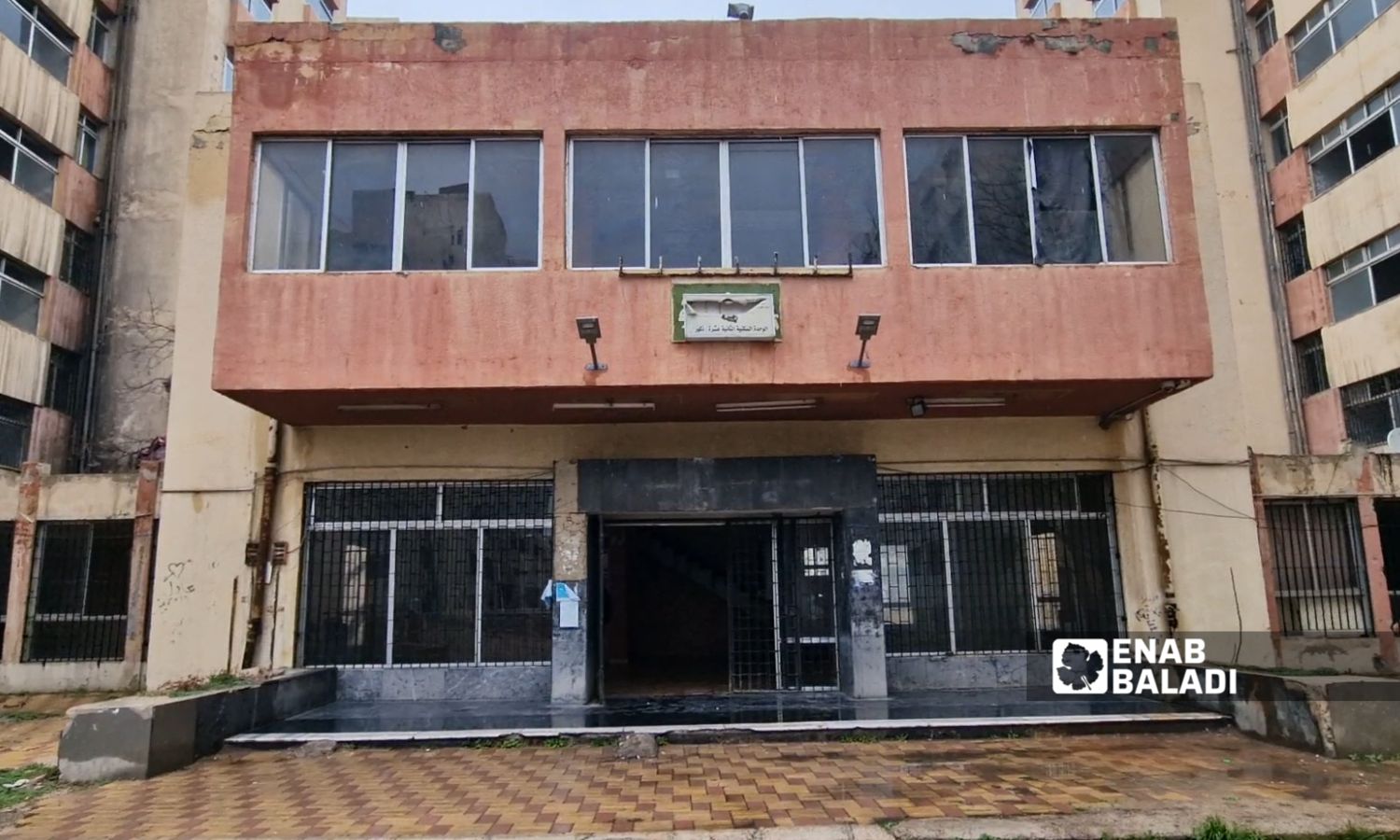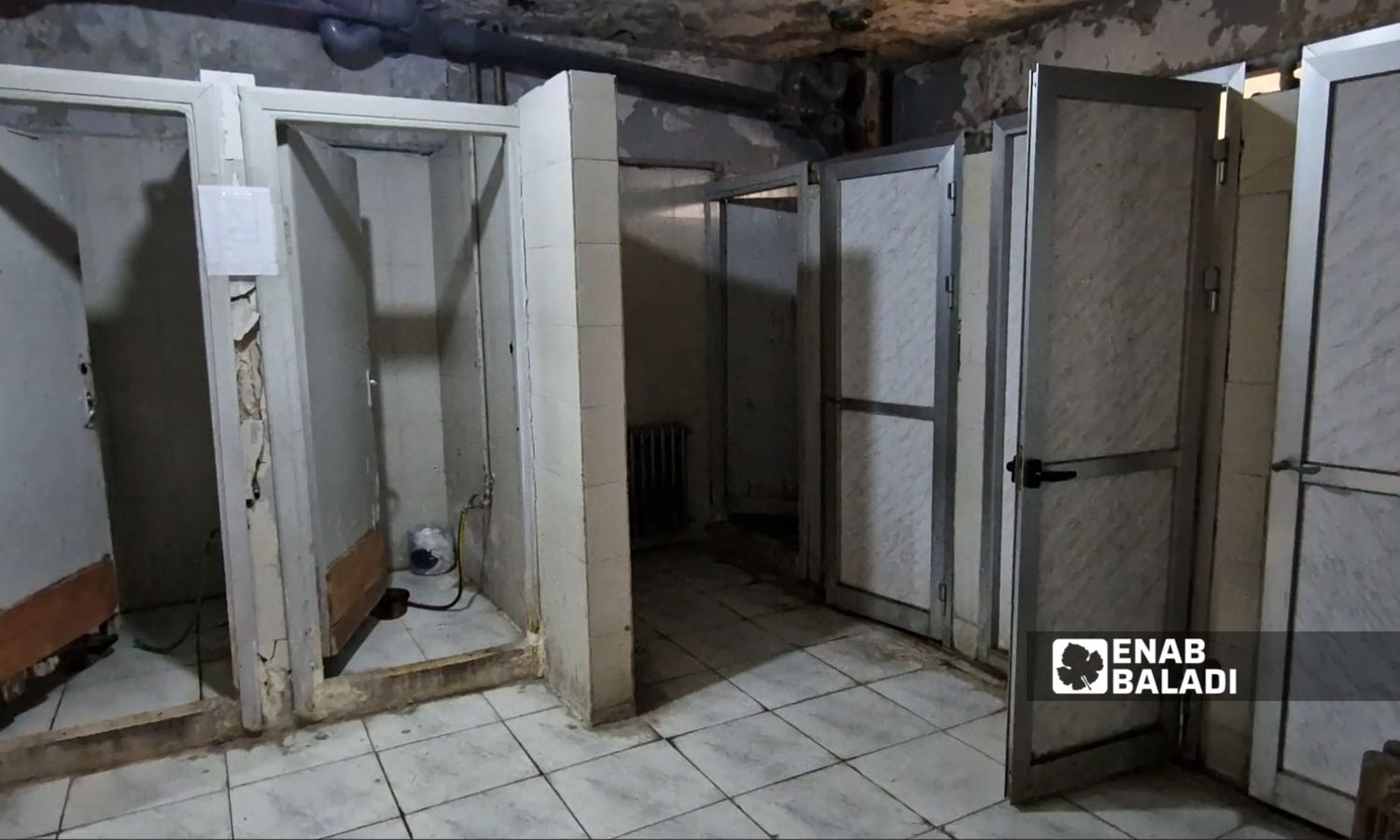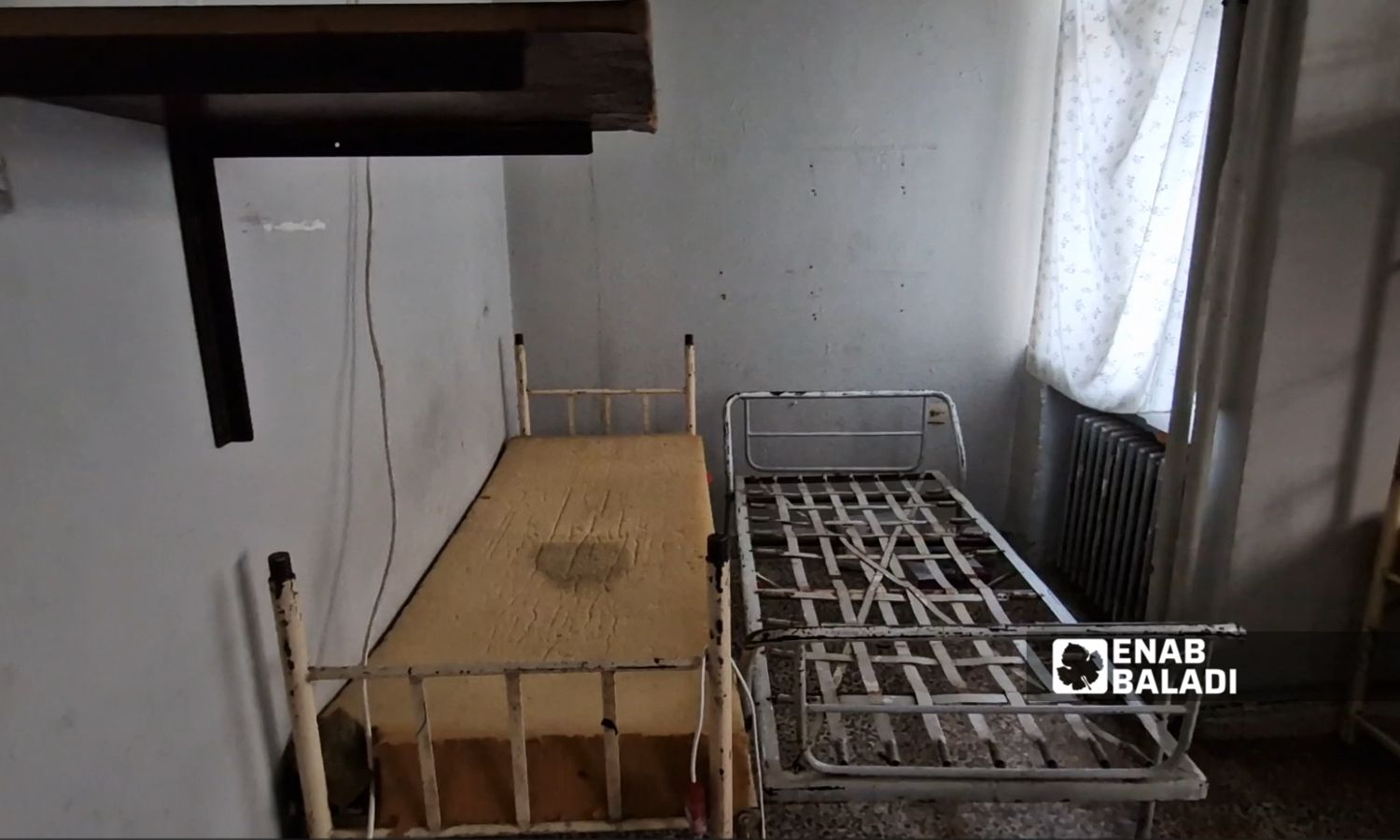



“Bathrooms resemble prisons,” “I’m graduating this year and I have not witnessed any good services,” “I suffer from kidney attacks frequently due to contaminated water,” with these phrases, students residing in university housing in al-Mezzeh, Damascus expressed their daily hardships.
Students continually face poor services in university housing on all fronts, from the lack of rehabilitation of units and rooms regarding beds, electricity, and heating, to bathrooms and kitchens that are unfit for human use.
Reem, a fourth-year education student residing in Unit 14, told Enab Baladi that she resorted to university housing as she couldn’t afford the cost of renting a home since she is from another province.
Reem shares a room with seven other students that barely fits four people.
The student is also complaining about the electricity rationing, which doesn’t come until midnight, expressing, “As a student with morning lectures, what’s the benefit of having electricity after midnight, and how can I study in a place where services are lacking?”
Students in university housing in al-Mezzeh are struggling with using the bathrooms, as some units have had their bathrooms out of service, like the first unit for young men, due to poor sewage management.
Some students resorted to closing some bathrooms to maintain cleanliness, leaving other students with bathrooms that have no doors or windows, and others that only have hot water for showering once a week, leading them to wait in line to use a “neglected bathroom,” as they put it.

The bathrooms of Unit 14 in the university city in al-Mezzeh – February 12, 2025 (Enab Baladi/Anas al-Khouli)
The condition does not apply to all units, according to some students, as the seventh unit for girls and the Arab and Foreign units witness improvements in services concerning bathrooms, cleanliness, and electricity, with the latter not experiencing electricity cuts, while the seventh unit has electricity from 8 AM until 10 PM.
Student Naseeba al-Labad, studying sociology and living in Unit 14, told Enab Baladi that for the past four years in university housing, she faces service problems daily, having previously experienced poor treatment from the unit supervisors, in addition to the unsanitary drinking water, as water tanks are full of insects and worms.
As for the elevators, they have been out of service for years, causing students living on the seventh and eighth floors to face daily difficulties in climbing to their level. According to her, “Don’t ask me about good services because I haven’t seen any.”
Student Okbah Zaimoua, studying civil engineering and residing in Unit 12, expressed his struggle to study due to the lack of electricity which only comes for one hour at noon.
He suffers from kidney attacks due to hard and unclean water, and when he came to the housing with his colleagues, they were handed a room that was not at all equipped, containing nothing but “the walls,” forcing them to bring all necessary room items from kitchen supplies to beds at their own expense.
Zaimoua told Enab Baladi, “Our room window is broken, we asked the administration to operate the heating radiators, but no one responded, and we only received promises.”

Beds in one of the rooms in Unit 12 for male students – February 12, 2025 (Enab Baladi/Anas al-Khouli)
The General Director of the University City, and a professor at the Faculty of Dentistry at Damascus University, Imad al-Ayoubi, clarified to Enab Baladi that he has received numerous student complaints and conducted a tour of the residential units to examine the services.
He stated that he directly addressed the issue of rehabilitating as many bathrooms as possible as urgent solutions. Regarding the closed bathrooms, he requested work crews to open them for all students to use, adding, “They are not exclusive to anyone.”
He further added that in terms of electricity, there are attempts to improve it as a first step by securing fuel for the generators, in addition to providing heaters to supply hot water. The electricity situation is expected to improve further before the beginning of Ramadan.
He explained that they are working on both urgent and long-term plans to provide services as much as possible through communication with organizations and civil society institutions to rehabilitate the largest number of residential units.
Regarding long-term plans, complete rehabilitation of all units and the construction of new units to accommodate more students will take place. As for electricity, solar-powered lighting poles will be installed throughout the university city, which will provide electricity 24 hours a day.
The accommodation capacity of university housing rooms declines each year, due to some becoming out of service, alongside the presence of students who do not qualify for the rooms, living alone or bringing in others through fake receipts, in addition to some residing staff members. Previously, there were rooms designated for employees of the Students Union.
Thus, a complete inventory of all rooms is being conducted, according to Dr. Imad al-Ayoubi, to fairly reassess the accommodation capacity of each room for students, as well as to rehabilitate the rooms that have gone out of service.
University housing in Damascus is similar to most state institutions that suffer from a deteriorating reality that has worsened in recent years, attributed to several factors such as neglect, theft, and administrative and financial corruption, which reflects on the services provided to citizens.
University housing in Damascus was established in the 1960s, and most students residing in it come from other provinces, resorting to the university city due to a lack of housing and rising rental prices.
The university city comprises three clusters (Al-Mezzeh, Hamak colleges, and the Faculty of Agriculture), with the number of residential units for the year 2011-2012, according to statistics published on the Damascus University website, reaching 27 units, including 13 residential units in the al-Mezzeh cluster, two for postgraduate studies, and two for political sciences.
The Hamak cluster contains four units, with two units in Barzeh, and two others out of service due to renovation and maintenance work.
if you think the article contain wrong information or you have additional details Send Correction